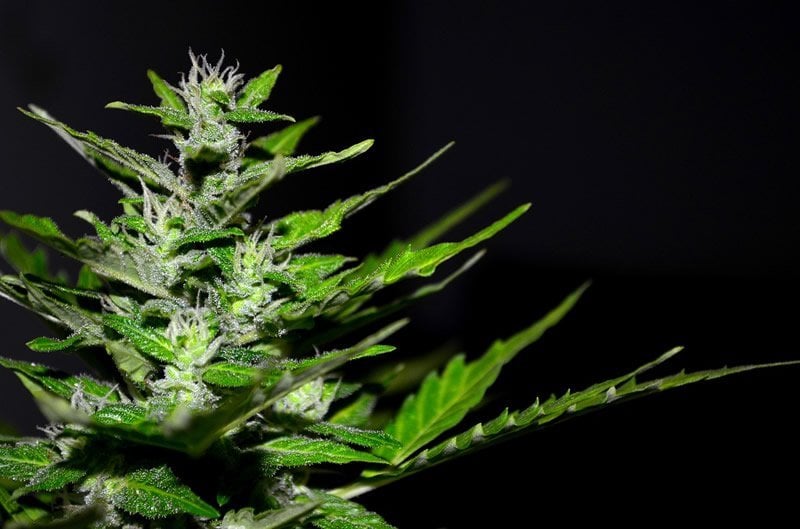Summary: In comparison to a placebo group, test subjects exposed to marijuana were more likely to form false memories based on incorrect information.
Source: Maastricht University
Eyewitnesses and suspects who are under the influence of cannabis are more likely to provide incorrect information during police questioning, scientists from Maastricht University (UM) conclude. They studied the effect of cannabis on the production of false memories that could lead to groundless accusations and wrongful convictions in legal cases. The findings of the Maastricht researchers were published today in the scientific journal PNAS.
Cannabis is the most widely used illicit drug in the world, and its main psychoactive constituent, Δ9-tetrahydrocannabinol (THC), has been previously associated with memory impairment. In this specific study, UM psychopharmacologists Lilian Kloft and Jan Ramaekers carried out experiments related to false memory production among 64 healthy, occasional users of cannabis.
In each experiment, the subjects inhaled the vapor either from a single dose of cannabis or from a placebo, and performed memory tasks immediately afterwards, and then also a week later. In the first experiment, the test subjects were shown 15 lists of related words. Compared with the placebo group, the members of the group under the influence of cannabis reported false memories much more frequently. Immediately after taking the drug, the subjects were more likely to say they recognised words that had not been previously shown.

The researchers also conducted two separate experiments with their test subjects using virtual reality (VR). In one of the VR experiments, the participants acted as eyewitnesses to a fight at a railway station. In the other virtual crime scenario, the test subjects themselves were responsible for committing a crime.
Questioning
Immediately after viewing these scenarios, the participants were interviewed by the researchers, who supplied incorrect information about the different crime scenarios by asking highly suggestive questions or by presenting the statement of a second (in this case virtual) witness. In comparison with the placebo group, members of the group under the influence of cannabis were much more susceptible to forming false memories based on incorrect information. A week later, when the cannabis users were sober, no such difference was observed.
‘Our findings show that it would be better for police officers and investigators to postpone the questioning of eyewitnesses and suspects who are under the influence of cannabis until they are sober,’ said Jan Ramaekers. ‘People under the influence of cannabis should actually be treated as a vulnerable group in a criminal investigation, comparable with children and the elderly.’
UM is currently conducting a follow-up study on the effects of MDMA on false memory. The results are expected next spring.
Source:
Maastricht University
Media Contacts:
Press Office – Maastricht University
Image Source:
The image is in the public domain.
Original Research: Open access
“Cannabis increases susceptibility to false memory”. Lilian Kloft, Henry Otgaar, Arjan Blokland, Lauren A. Monds, Stefan W. Toennes, Elizabeth F. Loftus, and Johannes G. Ramaekers.
PNAS doi:10.1073/pnas.1920162117.
Abstract
Cannabis increases susceptibility to false memory
With the growing global acceptance of cannabis and its widespread use by eyewitnesses and suspects in legal cases, understanding the popular drug’s ramifications for memory is a pressing need. In a double-blind, randomized, placebo-controlled trial, we examined the acute and delayed effects of Δ9-tetrahydrocannabinol (THC) intoxication on susceptibility to false memory in 64 healthy volunteers. Memory was tested immediately (encoding and retrieval under drug influence) and 1 wk later (retrieval sober). We used three different methods (associative word lists and two misinformation tasks using virtual reality). Across all methods, we found evidence for enhanced false-memory effects in intoxicated participants. Specifically, intoxicated participants showed higher false recognition in the associative word-list task both at immediate and delayed test than controls. This yes bias became increasingly strong with decreasing levels of association between studied and test items. In a misinformation task, intoxicated participants were more susceptible to false-memory creation using a virtual-reality eyewitness scenario and virtual-reality perpetrator scenario. False-memory effects were mostly restricted to the acute-intoxication phase. Cannabis seems to increase false-memory proneness, with decreasing strength of association between an event and a test item, as assessed by different false-memory paradigms. Our findings have implications for how and when the police should interview suspects and eyewitnesses.






